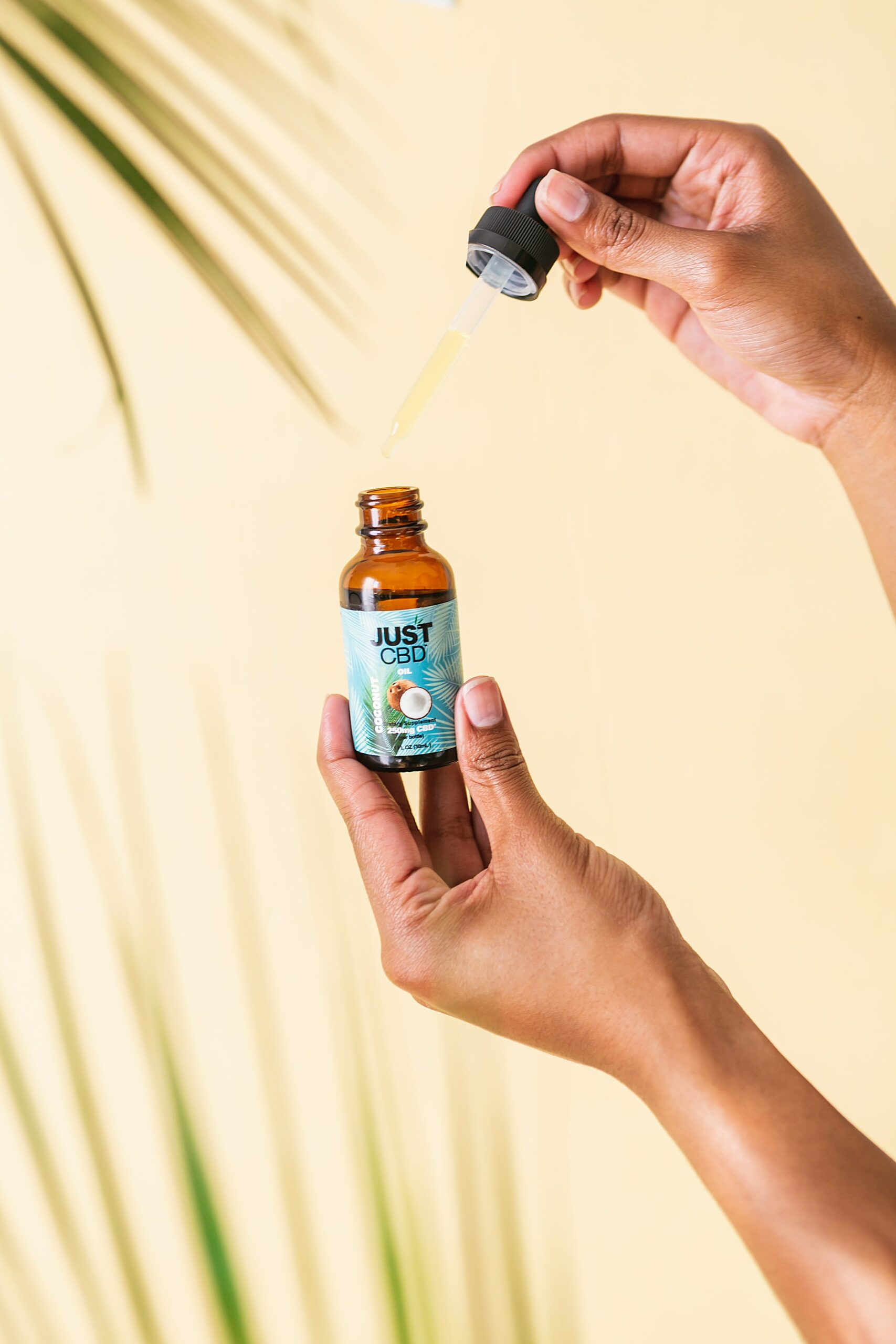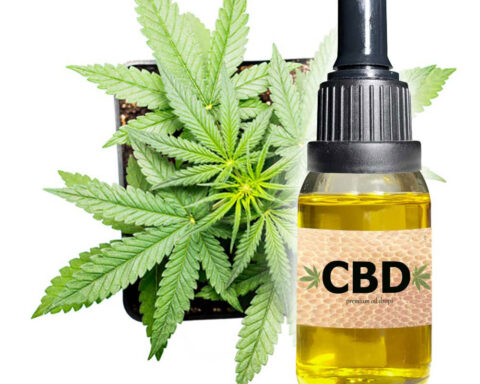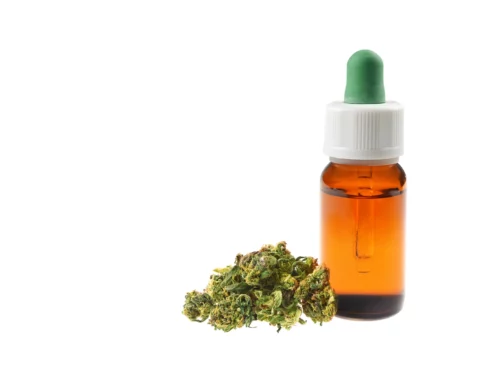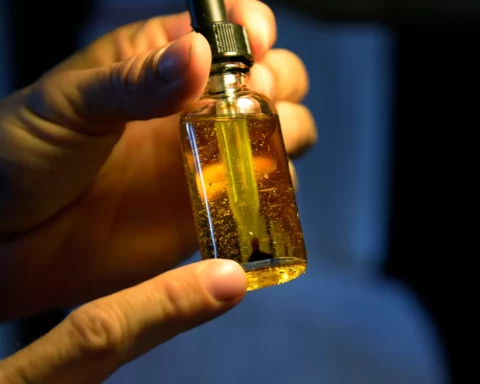Since the federal legalization of CBD oil in 2018, courtesy of the Farm Bill, one can easily buy CBD oil and its products in most states. Cafes, gas stations, stores, shops, and health food stores now stock these products with several varieties. Still, some states consider CBD oil illegal to possess, sell, or buy. Yet, others have legalized CBD oil but limited legal purchase to licensed CBD dispensaries. Following the variation in state laws that also change from time to time, keeping up-to-date records of your state laws will help to avoid being in trouble and suffering jail terms and fines. Even though CBD is widely consumed, the big question remains, how much CBD should you take? Keep reading this blog to understand CBD oil and the dosage topic.
The Basics About CBD Oil
CBD is a cannabinoid and one of the many active compounds in cannabis plants. There are many cannabinoids in the cannabis plant, with CBD oil and THC being among the most widely studied components. While both THC and CBD oil come from the cannabis plant, the federally legal CBD oil comes from hemp and should not get the user ‘high’ due to absence of THC. Should it have THC traces, the total concentration should not exceed 0.3%.
How CBD Oil is Consumed
You can buy CBD oil in edibles (gummies, mints, lozenges, etc.), softgels and capsules, topicals (serums, massage oils, shampoo, lotions, creams, etc.), oils (CBD oil and tinctures), vapes (vape cartridges, pens, and equipment), and smokables (pre-rolled hemp flowers and buds). CBD laws vary across states, and while some states virtually allow all CBD forms, some might limit legal use to specific forms. Irrespective of the form in which CBD oil is bought, you can have it in isolate (only CBD and no other compound), full-spectrum (multiple cannabinoids, including the psychoactive THC and CBD, terpenes, and flavonoids), and broad-spectrum CBD oil (terpenes, flavonoids, CBD and other cannabinoids, without the psychoactive THC). While the choice of formulation is personal, some people prefer the full- and broad-spectrum CBD oil for their full entourage effect, while others go for isolates or their flavorless and odorless nature.
The Determining Factors of the Amount of CBD Oil and CBD Products to be Taken
Since the FDA does not regulate CBD oil production, knowing the ideal CBD oil dosages has been difficult. In fact, currently, there is no recommended dosage for CBD oil since there is just not enough scientific evidence to claim the effectiveness of CBD oil for the benefits linked to it. Nonetheless, the CBD oil and products dosages you can take depend on the following factors;
- The severity of the condition for which you are taking CBD oil; how much CBD oil you can take will largely depend on how severe or less serious the condition you are managing is, and the relationship is directly proportional.
- The potency of the CBD oil or product; you might have to take one drop of a highly potent CBD oil but could take up to four drops if the oil is less potent
- The body chemistry/genetic makeup; people respond differently to CBD oil, and while some may feel the ‘effects’ with the least dosages, others might have to go slightly high to have any effect at all
- Body weight; when administering CBD oil to pets, most companies determine dosages based on weights, and the same applies to human beings, where some products might have to be limited among people with low weights and slightly increased by people with bigger weights
- Period of consumption; novice CBD enthusiasts need to keep the dosages low, while veteran users might find it ok to take slightly higher dosages
Speak to a Doctor About the Dosage
As mentioned previously, there is not enough scientific evidence to prove that CBD oil might be effective for most of the medical claims linked to it. Besides, the FDA has not approved CBD usage for most of the claimed benefits, making it hard to know the right dosages for the cannabinoid. As such, speak to the doctor when planning to take CBD oil and its products as a new regimen. Besides, the FDA has approved Epidiolex, a cannabis-infused drug, for two rare forms of epilepsy; Dravet Syndrome and Lennox-Gastaut. If you have to take Epidiolex, consult the doctor to know the right dosages, and once instructed, stick to the recommendations up until you finish the drug.
Go Slow on CBD Oil and Its Products’ Dosages
Many times, people might not feel the need to consult a doctor when taking CBD gummies and drinks. If you have to take CBD products with or without consulting a doctor, keep the dosage low. Many people take 20 to 40 mg a day for a start and watch how the body reacts to the cannabinoid. If you find relief (we do not mean that CBD oil offers relief for any condition although initial studies suggest so) in the smallest dosages, do not add. However, if need be, slightly increase the dosage, say to 45 mg during the third and fourth weeks and 50 mg during the fifth and sixth weeks.
Keep Track of Your CBD Dosage
You need to keep track of the CBD dosage and how the body reacts to them before adjusting the dosages. It is as simple as having a diary where you jot down the dosages you take, how many times a day to take the CBD oil, the amount of CBD per serving, and how the body responds. While this may sound a bit taxing, it might help to know whether or not to adjust the dosages. Even as you take CBD oil, remember that there is not enough evidence to conclude that CBD oil can help with the conditions linked to it.
Conclusion
Although CBD oil is popular, it has no recommended dosage. As such, consult a doctor to know the right dosages. Besides, keep the dosage low and have a track record of the CBD dosage to take and how the body responds to know whether and when to adjust the dosages all the same. CBD oil should not be marketed to treat, diagnose, heal, or cure anything since there is not enough scientific evidence to back these claims.
- Is Mushroom Coffee Worth the Hype? An Expert’s Take - April 19, 2024
- Missionary Position – Least Likely To Bring You To Climax - April 7, 2023
- Vibrators could put you in Jail - March 31, 2023









